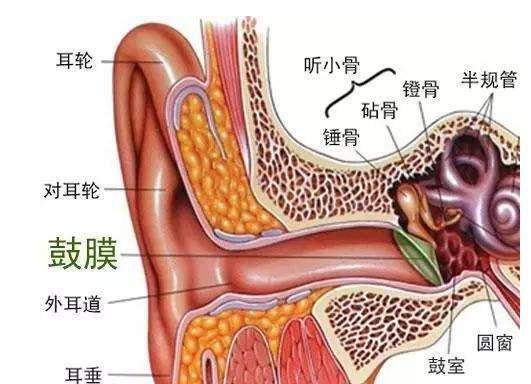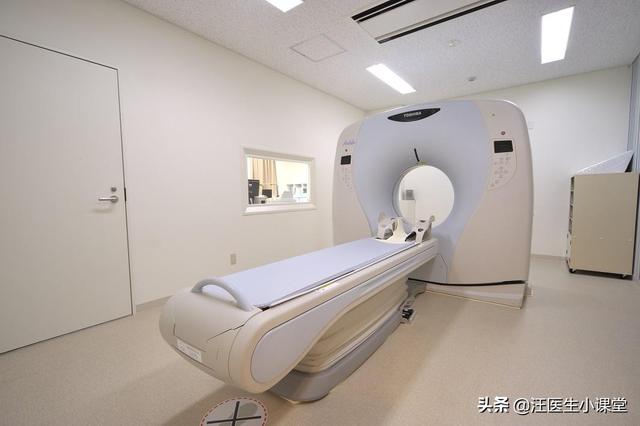What should I do if I am dizzy and not awake every day, and I can't find out the cause of my dizziness even if I have a brain CT in the hospital?
According to the description of the subject, it should be a symptom of dizziness, and there are really too many diseases that can cause dizziness in the clinic. According to the information given by the subject, it is difficult to accurately determine what kind of disease it is.

Dizziness can be caused whenever there is a lack of blood supply to the brain or problems with the brain itself as well as problems with the ears. Today I'll share a few common conditions that cause dizziness symptoms, which are summarized below.
1. Meniere's disease:

It is estimated that many people have never heard of this disease because its incidence is not too high. In essence, it belongs to otogenic diseases, the reason why it can cause dizziness is mainly because of too much secretion of lymphatic fluid in the ear, resulting in localized accumulation of water, the volume within the ear is fixed, which will increase the pressure within the ear, resulting in ischemia and hypoxia of the endings of the inner ear, which induces the symptom of dizziness.
Although this disease can occur at any age, it is most prevalent in middle-aged people, and many patients may experience a dull, rising ear and a dull pain in the ear before experiencing noticeable symptoms. When Meniere's disease hits, patients will experience tinnitus and some degree of hearing loss in addition to dizziness. The dizziness of these patients has its own characteristics, that is, when dizziness is present, its symptoms can be reduced if the eyes are closed.
In Meniere's disease, most of the dizziness is not persistent, and in many cases it is reduced on its own, but the dizziness does not disappear completely. At the same time, the dizziness in this group is often combined with digestive symptoms, such as nausea and vomiting.
2. Subclavian artery steal syndrome:
You may not know much about the subclavian artery, but we don't need to know too much about it, as long as we know that this blood vessel supplies blood to the brain. The name alone tells us that it refers to the blood that is supposed to be given to the brain, but for some reason it is stolen, and as a result, the blood supply to the brain is relatively reduced, which can lead to the symptoms of dizziness.
When these patients move the upper limb on the affected side, the blood ejected from the heart does not go directly to the brain, whereas when the normal upper limb is moved, part of the blood flows directly to the brain, and part of the blood flows to the limb with the problem. The affected limb needs more blood to move, but the failure to provide enough blood can lead to ischemia in the brain, which can cause dizziness.
This disease is not easy to be detected by routine examination, and the clinical diagnosis of this disease mainly relies on angiography. Of course, it can also be detected through physical examination, in the radial artery pulsation examination of such patients, it can be found that the pulsation of this blood vessel is obviously weakened, and the vascular murmur can be heard on auscultation.
3. Glaucoma:

Many people may wonder how glaucoma can cause dizziness. This is not nonsense, right? In fact, there is no nonsense, in the clinical diagnosis of the doctor is to consider the more common diseases, the ordinary checkups are done without a clear diagnosis will only go to consider uncommon diseases. According to the subject, he has done all the routine tests, and naturally, it is not like the common diseases that cause dizziness.
During an attack of glaucoma, the rapid rise in intraocular pressure can cause congestion and edema of the iris-ciliary body, and the presence of what is called the trigeminal and optic nerves around it, which can be compressed at this time, thus causing dizziness, which may also be accompanied by a loss of vision.
What should I do if I'm dizzy?
Through the above, I think you can see that this disease of the subject should not be a common disease. For this case, in order to get good results, then you need to figure out which kind of disease it is. The examination is too limited if you visit the doctor in the outpatient clinic, and for this case you can be hospitalized for examination.
First of all, you should choose to go to your municipal hospital, and if you still can't find out the specific disease, you can go to Beijing, Shanghai and other developed areas for further diagnosis and treatment.
Regardless of the specific cause of the disease, you should maintain good living habits. Usually pay attention to not stay up late, quit smoking and drinking, adhere to exercise, regular medical checkups light diet, change their bad habits, but also be able to alleviate the symptoms to a certain extent.
Purely hand-typed, it is not easy, if you feel that the writing can also be rewarded a praise, point a concern, if you have any questions can be left below ......
If multiple visits to the hospital, including multiple tests such as brain ct, do not reveal any cause, it may be necessary to consider the possibility of a functional disorder. Functional disorders are disorders that do not have a substantial somatic lesion, such as depression.

Why might it be because of depression?
According to the medical diagnostic level, we have to consider organic diseases first, and rule out the possibility of organic diseases through physical examination and auxiliary tests such as brain CT. After ruling out the possibility of organic diseases, we can then consider functional diseases to see if there is a problem in any non-organic function.
So why consider depression? This has to do with the symptoms of depression, depression patients are generally very easy to feel a significant loss of energy performance, very easy to fatigue, sometimes accompanied by some neurological headache symptoms, there may also be a certain degree of sleep disorders, so many depressed people will feel all day drowsiness, not awake. If you happen to have some other symptoms of depression manifestations, you may have to consider depression first.

- For example, a decrease or even loss of interest, a sudden loss of interest in things that used to be of interest.
- For example, social withdrawal performance, suddenly do not want to go to social activities, even if the best friends call you and you do not want to go, even if you go will not feel happy, but as a burden.
- For example, changes in thinking, for people with depression, it is as if their brains suddenly become stupid and their reactions slow, often losing things, and even problems that were originally very simple become difficult.
- For example, diminished volitional activity, for anything depressed people show withdrawal, avoiding and retreating when they can, and for what may be a very small activity for them is a headache.
- For example, low emotions, for whom anything will involuntarily consider the worst possible, negative and pessimistic negativity fills his entire life.
- For example, changes in self-confidence, people with depression can lose self-confidence, feel worthless, and may even artificially attribute many of their failures to themselves.
Of course, this is only some of the symptoms that often appear in patients with depression, if you really have some of the above manifestations, be sure to go to the psychiatric hospital to take a look, no disease is best, rule out the best, if you really diagnosed with depression, as early as possible to treat, there will certainly be improvement. For example, lethargy, easy to fatigue is one of the somatic symptoms of depression, if the depression is relieved, somatization symptoms will naturally be relieved.

Dizziness is a common symptom, there are many diseases that can cause dizziness, a sub-healthy state of the body can make a person feel groggy, and a person's mood has an important effect on the state of the brain.
It is normal for dizziness to be first thought of as a brain disorder, and some brain disorders can be ruled out by checking a brain CT that does not reveal a problem, although dizziness caused by cerebrovascular causes such as some may require special imaging tests to detect (CTA).

Even if there are no lesions in the skull, it is necessary to exclude other systemic diseases, such as hypertension, diabetes, hypotension, cervical spondylosis, etc., which means that if you are not sure, you should do a full-body physical examination to exclude common clinical diseases that can cause dizziness, and it is recommended that you seek a specialized internal medicine evaluation and consultation.

If the whole body physical examination is good, then do not think too much, every day a positive mind to live, enjoy the food, strengthen the exercise, enough sleep will make you refreshed, the mood to be good, this is also helpful to improve the dizziness. I hope my answer can bring you help! If you like it, click a like!
I've been like this for a few years now, and I've had all the tests done, and I've seen Western medicine and Chinese medicine all over the place, but it just doesn't get better. The psychiatrist said it was depression was tortured by this disease! [tears] [tears] [tears] [tears]
Cerebral insufficiency of blood supply, cervical spondylosis, heart disease three in one, so far is a common clinical disease, 10 Chinese 10 people have this symptom.
I have been in this situation for six years. Seek medical advice everywhere, in June this year to the hospital neurologist to see a doctor, initially identified as cone basilar artery syndrome, took a box of western medicine for ten days, feel the effect.
It is a problem with blood vessels, take precautions, drink more tea, eat less meat, less oil, especially sugar less accounted for.
It is true that people who have depression and anxiety, their inner feelings, normal people can not be experienced, to tell them that we have a hard time, they always think that we are very pretentious, saying that there is something wrong with our thinking. Yes, they are right, it is true that there is something wrong with our thinking.
Why do you say that it is our mind that has gone wrong? Because depression and anxiety is a disease that can't be examined by medical medical equipment to find the cause, because this disease is something wrong with our heart, this disease stems from two aspects, if you can overcome it, you will definitely get better. I will use my example to tell you how to solve the mood and symptoms of depression and anxiety.
One morning last year, after waking up and walking down the street, I suddenly got very dizzy and felt like I was going to faint. I thought there was something wrong with my head, could I have gotten a brain attack myself? But after a round of checkups at the hospital, I was even more confused. All my organs and blood counts were normal. There was no cervical spondylosis, vertigo, Meniere's syndrome, otolithiasis, low blood pressure, high blood pressure, diabetes mellitus, Parkinson's disease, coronary artery disease, insufficient cerebral blood supply and so on, which cause dizziness. In the words of my family, I couldn't be healthier. But my pain can only be felt by myself, a unit out of the door to walk on the road began to dizziness, walking floating, legs weak, feet walking lift feeling, at any time to faint on the ground like, there is no way, I walk on the road, I must put all the attention on their own, for fear that they accidentally fainted, can not go to work, walking over a person, I feel like I have to fall, and subsequently, the pain in the neck and shoulders, the pain in the neck and shoulders. of this, there was also pain in my neck and shoulders, pain in the back of my head, and numbness in my hands and feet.
This is a symptom that you should never be knocked down by, you must learn to live with it, because once you are too afraid of fainting to get out of your house, you will never be able to perceive the outside world, and over time, you will trap yourself in your home. It was such a severe punishment that I still persevered, I could have done nothing but I wasn't detached from the outside environment.
At one point, a neurologist told me that I might have somatization disorder, which is a type of anxiety depression, and that all of my symptoms manifested physically, and that there was nothing wrong with my mind or my psyche, but I was diagnosed with anxiety depression just the same.
According to the doctor's requirements, I began to take anti-anxiety and depression medication on time, as well as medication to nourish the nerves, and at the same time, I reduced my work pressure to a minimum, quit all bad habits, went to bed early, got up early, exercised, and always maintained a good mood. After six months of this, my mind was incredibly clear, my body was very relaxed, and I was back to my old self.
To summarize, if you don't have any organic lesions on examination, you have to wonder if you have anxiety depression. Many people do not recognize that they have anxiety and depression, they do not feel anxious, but your nerves have shown, according to the doctor's requirements to adhere to the medication, will certainly get better.
In fact, everything stems from poor sleep, high stress and a lot of thoughts. As the saying goes, everything depends on you.

This question and answer are from the site users, does not represent the position of the site, such as infringement, please contact the administrator to delete.